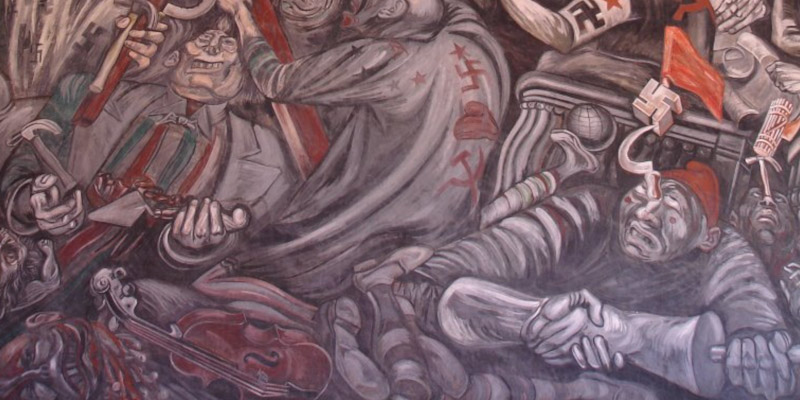
Don’t ignore this telling statement from Brown University.
Hardly a day goes by that doesn’t increase the skepticism I bring to recent Ivy League degrees. Do students at these schools have any appreciation of the practical world? If they have specific technical knowledge, to what extent is it buried beneath layers of cultish left-wing ideology?
If you, like me, have a strong feeling that America’s institutions of so-called higher education have opened a gateway to a separate reality, look no further than Brown University’s recent statement addressing recent campus protests:
Brown’s administration was widely criticized for having student protesters arrested. Not only were students opposed to the school’s response, but more than 200 faculty called on the school to drop the charges. When they were dropped, Brown released a lengthy, complex statement reflecting on Awartani’s injuries, a history of campus activism and the student body’s current divisions.
“We have rarely seen a moment like this across this country that pits members of campus communities against each other,” the school said. “These are extraordinary times, and we recognize that.”
Despite having directed the arrests to be made, Brown recognizes uprisings of the past, its library documenting them in detail. The university calls it “part of the multi-dimensional fabric” on campus, and says protests “exemplify the humanitarian spirit at the core of the Brown community.”
For those you’ve thought of colleges and universities as part of our shared society, a statement like “we have rarely seen a moment like this across this country that pits members of campus communities against each other” may be puzzling. What do they mean by that?
On the other hand, the statement is perfectly clear — a commonplace — if you recognize that the people who inhabit these institutions think of themselves as more enlightened than, distinct from, and above the common people. For decades, Brown University and its students have been “pitted against” other people. You. The policies and traditions you support. Students are supposed to be protesting against and hating you. You can call it “white supremacy,” “patriarchy,” “cis heteronormativity,” or whatever; those are all just meaningless synonyms for people who aren’t as morally deserving as those who pass through Brown University.
The challenge is that Hamas’s savage, Medieval brutality on October 7 and the shocking (surprisingly well-organized and well-funded) support of it across the West has put America’s self-presumed elites in an awkward position. The progressive identity group that has provided the symbolism for this year’s “no justice no peace” protests is in direct conflict with one of the original victim groups of actual white supremacy: Jews.
Let’s notice something in tangent, here, that goes directly to Brown’s problem: The defensive claim that it’s possible to oppose Israel while not opposing Jews is hollow, these days, in large part because the ideology of group identity prevents it. While not all citizens of Israel are Jews, the Jewish identity is intrinsic to the state. Traced back to scriptures thousands of years old, Israel is the land of Jews.
So, when a survey asks respondents whether “Jews as a class are oppressors and should be treated as oppressors,” a generation of young adults now 18-24 years old who have been educated entirely under the dark cloud of identity politics says, “yes,” 67% of the time. It doesn’t resolve this problem that the other survey answers are confused, with 69% of these young respondents also believing Israel has “a right to exist as the homeland of the Jewish people.” To be frank, it isn’t clear that they have any understanding of actual reality. Fifty-eight percent of them believe “Hamas would like to commit genocide against the Jews,” but 60% believe “Israel is committing genocide against those in Gaza.” Despite it all, 76% think “Hamas is an organization that can be negotiated with to create peace.”
Two explanations exist for these results, and they can coincide. First, these kids have simply learned that the word “genocide” is anodyne activist-speak for “opposing.” Second, they think every identity group intrinsically wants to wipe out every other identity group, but that some can be labeled as “oppressor,” which makes them the default bad guys. An earlier question in the report finds 79% of these 18-24 year olds supporting an ideology that says “white people are oppressors and nonwhite people and people of certain groups have been oppressed and as a result should be favored today at universities and for employment.” They believe this despite the fact that only a narrow majority (51%) think the attitude is helpful to society.
In a delusional world in which every group wants to commit genocide against every other group, American campuses that once deserved the label of “elite” serve up “oppressors” as the Other against whom their communities should unite. Beyond being probably unemployable, their graduates should arguably be considered dangerous.
Featured image by Jose Clement-Orozco, “The Clowns of War Arguing in Hell,” from WikiArt.
